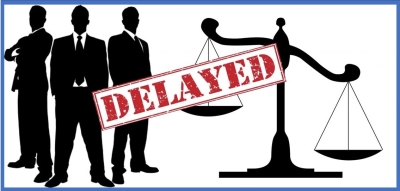
For asbestos cancer patients who seek legal redress against asbestos companies,
time is of the essence.
An unexpected cancer diagnosis has produced an avalanche of out-of-pocket
costs. For those who were working, a vital income stream has been cut
off. Even in states where preference is given to patients with life-threatening
cancer, it takes at least nine months from the time a case is filed until
it goes to trial. In other states it can take two or more years.
In most cases, the patient is the best, and often the only, source of evidence
of exposure from defendants’ asbestos products. If the patient is
unable to testify at trial or a trial preservation deposition, the case
is substantially weakened and may be dismissed.
In most states, if the patient does not survive until completion of trial,
damages for the physical pain and mental anguish he or she experienced,
often the largest component of damages in the case, are not recoverable.
For asbestos cancer patients who seek legal redress against asbestos companies,
delay is their worst enemy. For asbestos companies, delay is often their
most powerful weapon.
It comes as little surprise that asbestos company lawyers have “weaponized”
the COVID-19 pandemic to seek strategic advantages in asbestos cancer
cases. The tactics we have encountered include:
- Refusing to accept service of process by mail, knowing that process servers
will have difficulty effectuating personal service at corporate offices
that are closed;
- Interfering with trial preservation depositions by such means as: a) asserting
that the deposition, even when taken via videoconference, is violative
of stay at home orders and inadmissible, b) attempting to prevent us from
being physically present with the patient even when wearing a mask and
observing appropriate distancing, and c) bringing a motion that halts
the deposition before completion, knowing it will take weeks or months
for a court to issue a ruling;
- Resisting efforts by courts to conduct jury trials with appropriate distancing
by such means as: a) asserting that prospective jurors wearing masks during
in-person jury selection is violative of an asbestos company’s constitutional
due process rights, and b) asserting that jury selection conducted via
videoconference likewise violates the company’s due process rights;
Fortunately, when brought to the attention of trial and appellate court
judges, these tactics have been mostly met with blistering disapproval.
However, the reality is that extended closures, backlogged cases, a flood
of new cases, and comprehensive health and safety protocols will drastically
limit the capabilities of courts for the foreseeable future. Delays are
inevitable. So too are asbestos company lawyers’ efforts to extend
and capitalize on these delays in every way imaginable.
We will confront this new “pandemic reality” by aggressively prosecuting our clients’ claims, exposing
and combating defense tactics, and preventing systematic delays from denying
justice to our clients.